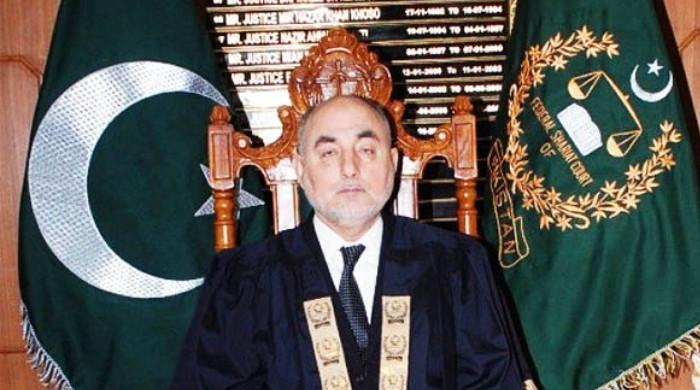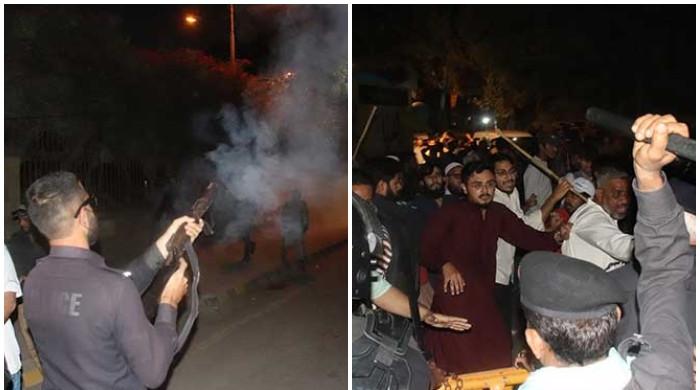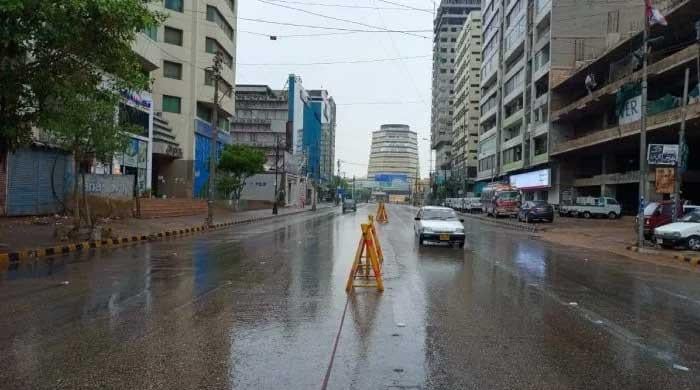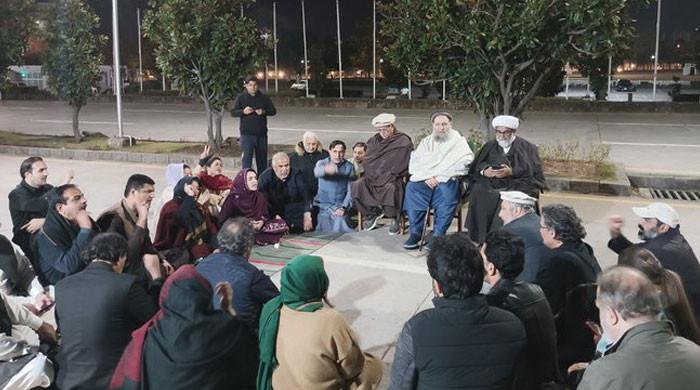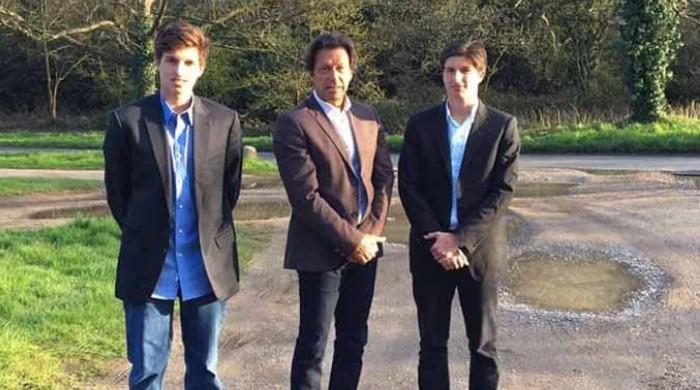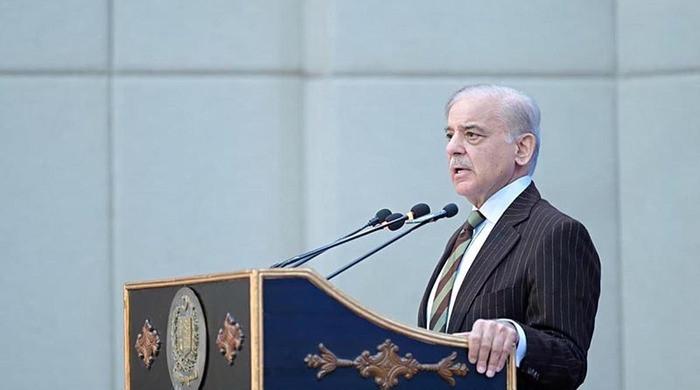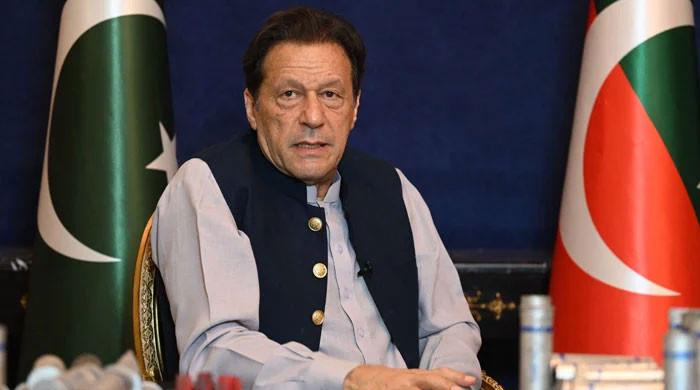Punjab makes face mask mandatory for a week in smog-hit districts
"Prioritising health is our collective responsibility. Please adhere to the guidelines for a safer community," says Mohsin Naqvi
November 19, 2023
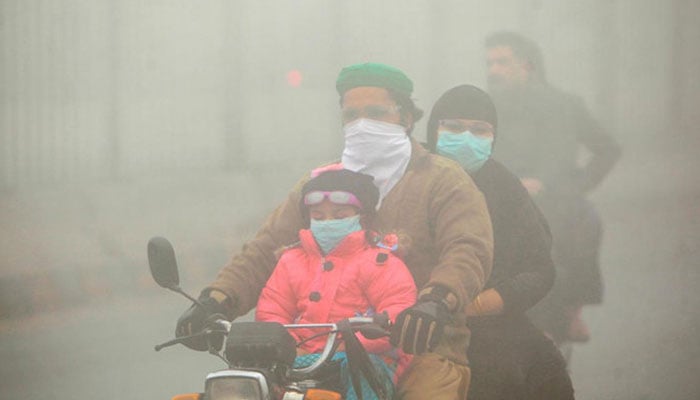
- Punjab CM urges citizens to adhere to guidelines.
- Citizens ordered to wear masks while outdoor.
- Punjab plans to carry out artificial rain in Lahore.
In a bid to counter deteriorating quality in Punjab, the caretaker government on Sunday made it mandatory for all citizens to wear a face mask for a week in the smog-hit districts of the province.
"Prioritising health is our collective responsibility. Please adhere to the guidelines for a safer community," said Punjab's Caretaker Chief Minister Mohsin Naqvi in a post on X, formerly Twitter.
The notification shared by Punjab's healthcare department said that the high level of the Air Quality Index (AQI) due to SMOG poses a serious and imminent threat to public health in all age groups.
The government urged all citizens to take all possible safety measures for the prevention and control of airborne diseases in the province of Punjab.
Primary & Secondary Healthcare Department's Secretary Ali Jan Khan said that, with the approval from the chief minister, all citizens are ordered to wear face masks during all kinds of outdoor activities.
"The above order shall be implemented in the areas of Lahore Division (District Lahore, Nankana Sahib, Sheikhupura, Kasur) and Gujranwala Division (District Gujranwala, Gujrat, Sialkot, Narowal, Hafizabad, Mandi Bahuddin), having highest Air Quality Index (AQI), for next one week i.e., November 20, 2023 to November 26, 202," the notification added.
A day earlier, the government said it was planning to carry out artificial rain in the provincial capital later this month.
Provincial Environment Minister Bilal Afzal said that a team and working group should be formed to provide artificial rain which will consult on providing aircraft to carry out artificial rain.
Punjab districts including Lahore Jhang, Hafizabad, Khanewal, Nankana, Bahawalnagar and Sheikhupura are experiencing the worst air pollution.
Meanwhile, the Lahore High Court has ordered the authorities to close all schools and colleges on Saturdays in smog-hit districts. The court also directed the government to implement a work-from-home policy for two days a week.
Why is pollution in South Asia worse than in other places?
Countries in South Asia have seen a marked increase in industrialisation, economic development, and population growth over the past two decades, leading to increased demand for energy and fossil fuels.
While sources like industries and vehicles affect most countries, certain major contributors are unique to South Asia, including solid fuel combustion for cooking and heating, human cremation, and burning of agricultural waste.
About 38% of the pollution in New Delhi this year, for example, has been caused by stubble burning — a practice where stubble left after harvesting rice is burnt to clear fields — in the neighbouring states of Punjab and Haryana.
An increase in the number of vehicles on roads as the region has developed has also exacerbated the pollution problem. In India and Pakistan, for example, the number of vehicles has increased four-fold since the early 2000s.
New Delhi, ranked the world's most polluted capital for four years in a row by Swiss Group IQAir, has 472 vehicles per thousand population, according to government data, with almost eight million vehicles plying on its roads as of 2022.





